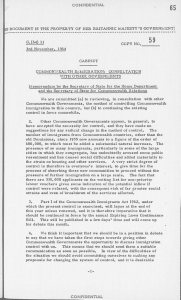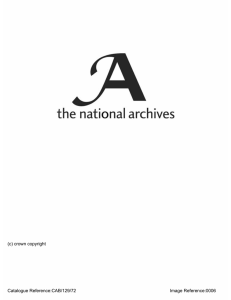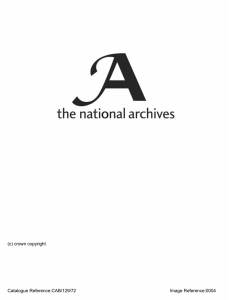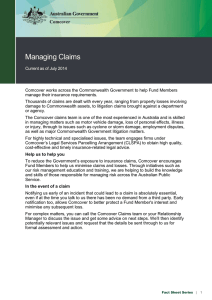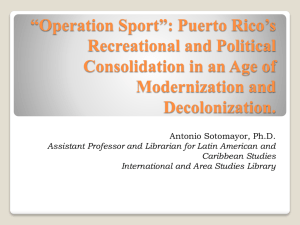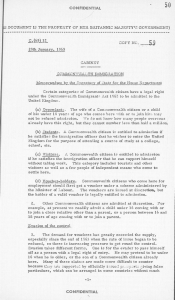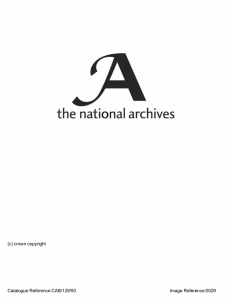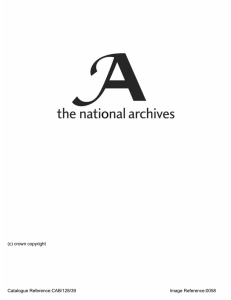(c) crown copyright Catalogue Reference:CAB/129/77 Image Reference:0013
advertisement
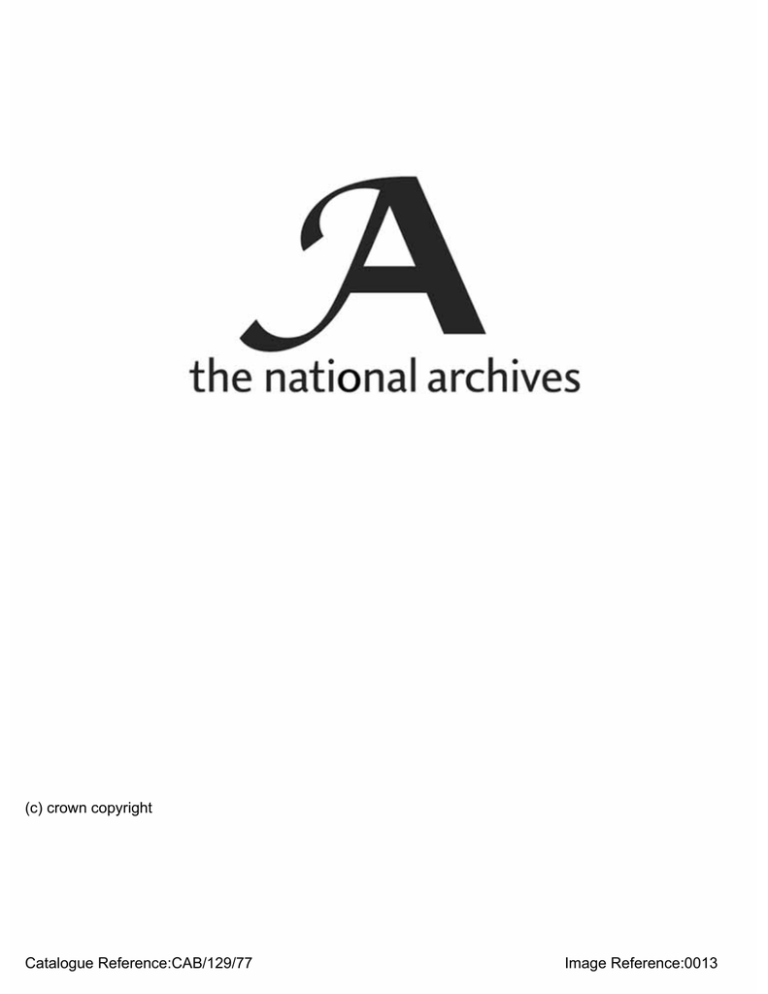
(c) crown copyright Catalogue Reference:CAB/129/77 Image Reference:0013 ^7 Printed for the Cabinet. September 1955 Copy N o . SECRET C P . (55) 113 2nd September, 1955 CABINET COLONIAL IMMIGRANTS MEMORANDUM BY THE SECRETARY OF STATE FOR COMMONWEALTH RELATIONS As I shall be overseas when the H o m e Secretary's paper on Colonial Immigrants ( C P . (55) 102) comes up for consideration by Ministers, I should like before I leave to put on record some points which seem to me of importance from the point of view of Commonwealth relations. 2. The problem faces us with a dilemma: on the one hand, it would presumably be politically impossible to legislate for a " colour bar " and any legislation would have to be non-discriminatory in form. On the other hand, we do not wish to keep out immigrants of good type from the " old " Dominions, and indeed " two-way immigration " is a policy to which we have always subscribed. 3. I understand that, in the view of the H o m e Office, Immigration Officers could, without giving rise to trouble or publicity, exercise such a measure of discrimination as we think desirable. But everything turns on whom the discrimination is to be against. It would probably be quite easy to discriminate in favour of white members of the " old " Commonwealth countries. But what is to be the position about immigrants from the Asian Members of the Commonwealth? 4. I myself would argue that we should not take any action which would give the impression that citizens from India, Pakistan and Ceylon are less favourably treated than citizens from the older Commonwealth countries. I am aware that there has been an increase in the last year in the number of working-class Indians coming here. This is a new development and, unless it is checked, it could become a menace. But the Government of India are genuinely ready to do what they can to stop immigration of this type. I have no doubt that the same would be true of the Government of Pakistan. There is also the political angle to be considered. A n y suggestion that the United Kingdom were introducing a discrimination based on colour or race would be certain to provoke strong reactions in the Indian sub-Continent, where feeling is very sensitive. There might well be a danger of the Governments of India and Pakistan introducing retaliatory restrictions against the entry or residence of members of the British business community (who already have their troubles). The British communities in the sub-Continent are not large but they are of vital economic importance to us. v 5. If this is accepted, I would much prefer that the reference to Indians and Pakistanis at the end of paragraph 4 of the Appendix to the Committee's Report attached to C P . (55) 102 should be deleted. The statement is entirely accurate, but I fear that its inclusion in a public statement might unnecessarily start a controversy in India and Pakistan which could have awkward repercussions on the British communities there. 6. In any case, as recommended by the Committee, I should like to give Commonwealth Governments advance notice of any statement before it is issued and should wish to reassure them as far as possible about the effect of such legislation on the entry of their nationals into this country. Commonwealth Relations Office, Downing Street, 30th August, 1955. 48689 68
